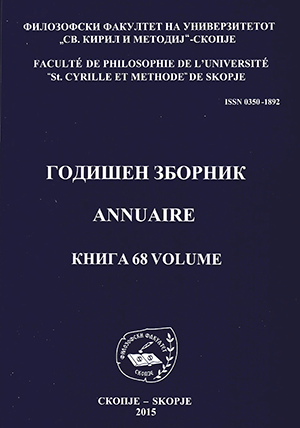LICET, LICET, LICENTIA
DOI:
https://doi.org/10.37510/godzbo1568077dzAbstract
In Classical Latin the noun licentia means ''freedom, permit, immoderate behaviour" and the verb licet means "it is permitted\ one may, it is all right". Subject of analysis in this work are the two oldest literary examples of the noun licentia found in the works of the Roman playwright Plautus. The analysis shows that the meaning of the noun licentia used in a wordplay in the sixth scene of the fourth act of the comedy "Fisherman's Rope" is completely different from the typical meaning of this noun in Classical Latin. Unless this is just a case of transferring the meaning "one may" from the verb to the noun, than perhaps Plautus in this wordplay testifies of an older stage in the semantical development of the noun licentia i.e. of the etymological relationship between the verbs licet, "it is permitted, one may, it is all right" and liceo, "to fetch".





